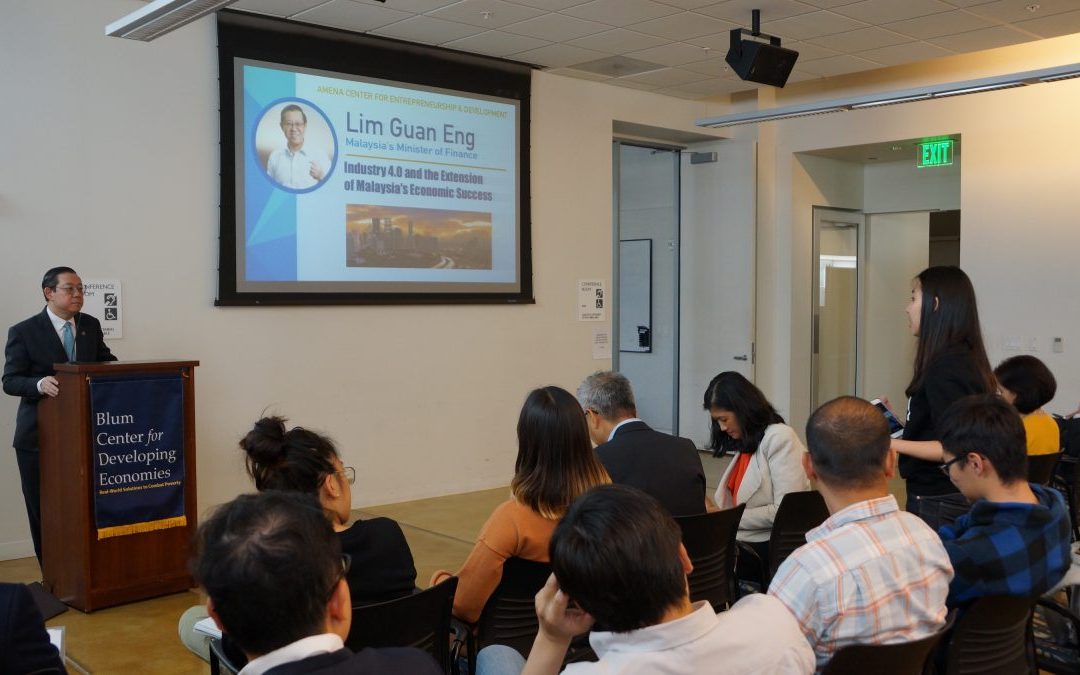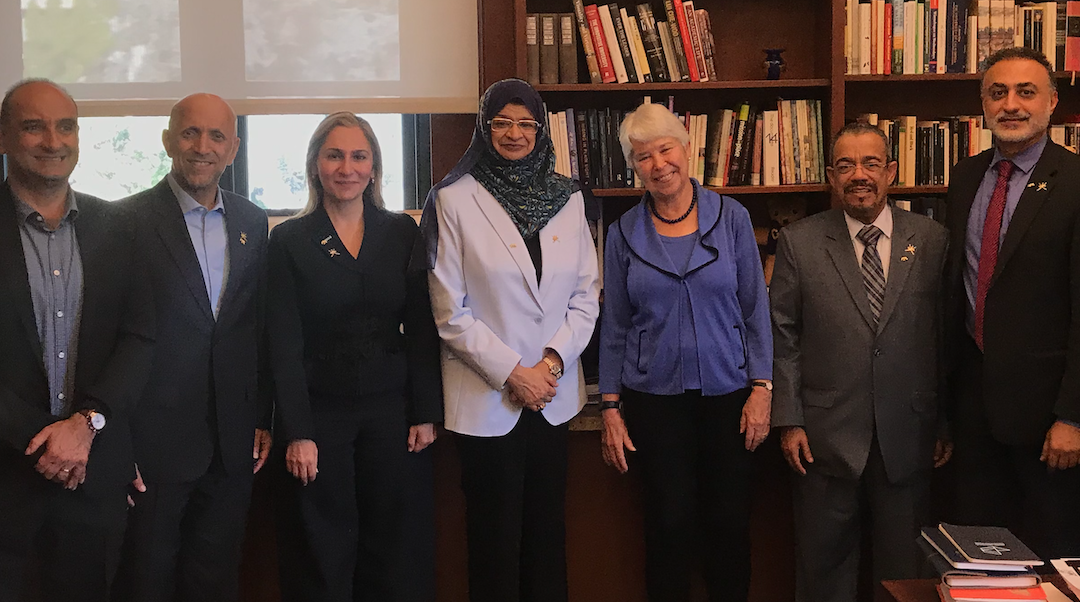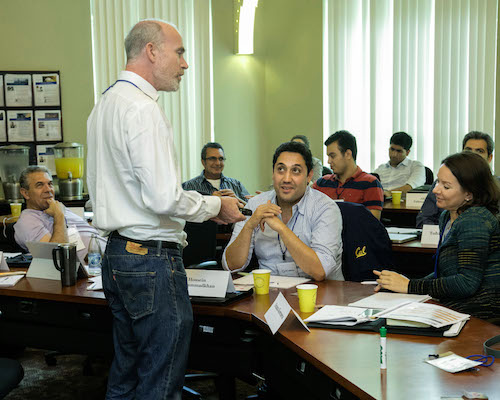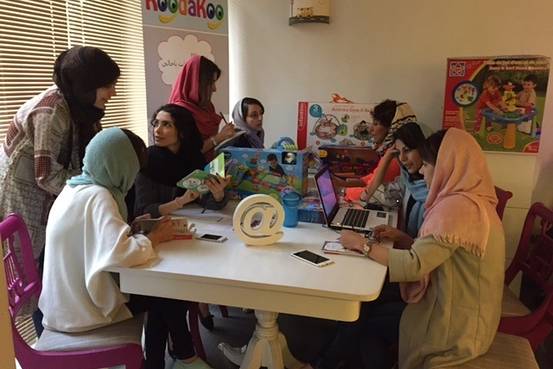
AMENA Center Brings Malaysian Minister of Finance Lim Guan Eng to UC Berkeley

Lim Guan Eng, Minister of Finance for Malaysia, who had been invited by the AMENA Center for Entrepreneurship and Development, addressed UC Berkeley students and faculty on the topic of “Industry 4.0 and the Extension of Malaysia’s Economic Success” at the Blum Center on October 18.
For more information: https://blumcenter.berkeley.edu/news-posts/malaysian-minister-of-finance-lim-guan-eng-visits-the-blum-center/?fbclid=IwAR1A7_XGyU2xJR-jFW3jOnE83cP_cCJwKCVMPaY55CxV_uLqxXWm1YzUlUs








Recent Comments